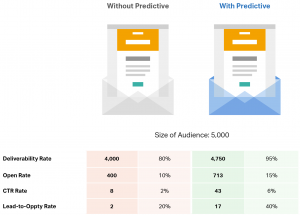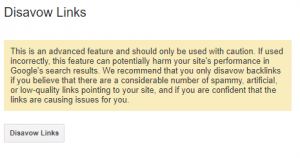Hi, Welcome
Welcome back
— October 17, 2017
To help you head into next year fully prepared, this week I’m uncovering the major strategic job trends which have shaped 2017.
This article will look at job trends of 2017 from a strategic perspective and will be of value to senior business decision-makers – executives, senior managers and board members.
STRATEGIC ANALYSIS OF TOP JOB TRENDS IN 2017.
1. MORE CAREER OPTIONS.
A recent McKinsey & Company study cited that over 160 million people in Europe and the U.S. engage in some form of independent work.
In 2017, digital platforms (think Upwork, Dice, TopTal and Remote.com) are continuing to pop up like mushrooms.
A recent Forbes article cited 79 such websites. Which means it’s easier than ever for these workers to find great gigs—and for companies to find great gig workers.
Questions to consider:
- Is your company prepared to maximise contingent workers? Make sure you have the right policies and technical tools in place to protect your interests and to ensure these workers are treated fairly.
- What about unionisation? There’s already a large freelancer’s union in New York and if the trend to organise spreads, it could be a game changer both for employees and employers. Especially in the UK and Australia, where these workers step outside the comfort zone of traditional socialised systems.
2. MORE MOVEMENT.
This year a handful of big players have moved their company headquarters, major facilities or R&D centres closer to the talent they need.
- The tech renaissance of the auto industry has prompted BMW, Honda, Hyundai, Mercedes-Benz, Nissan-Renault and Toyota to open R&D centres in Silicon Valley.
- JPMorgan Chase, Goldman Sachs and Citigroup are moving their UK offices to up-and-coming financial hubs such as Paris, Dublin and Frankfurt to explore new talent pools.
From the people perspective, the talent for these roles also wants to go mobile. According to Korn Ferry FutureStep, in the tech sector alone we must pay attention to the following job trends:
- 72% of UK professionals would consider an international move.
- 23% are actively looking to make an international move.
Key takeaways:
- If you’re a leader in the UK, be aware that your best people may be getting restless for change.
- If you’re in Australia struggling with hard-to-fill positions, it’s a great time to tap the UK market.
3. MORE GENERATIONS.
2017 is Gen Z’s first full year in the workplace, creating an even wider knowledge, skill and expectation gap between younger and older workers.
Especially when it comes to workplace technology.
At the same time, according to the Institute For The Future (IFTF), the number of Americans over 65 will increase by 70%, which means their work lives will continue to extend beyond traditional retirement age.
Meanwhile, millennials are striving for (and beginning to land) leadership roles. But according to the Harvard Business Review, a mere 7% of companies feel they have world-class leadership development programs in place.
Things to consider:
- Is your company’s technology ready to enhance collaboration between these vastly different teams?
- Are your leadership programs up to snuff, and current enough, to prepare your leaders at all levels?
- Do you have a workforce plan in place that addresses the needs of employees of all ages?
Remember, each working generation will continue to exert their demands and influences on every aspect of corporate culture—technical and otherwise. Get ready to flex.
4. MORE EMPHASIS ON CULTURE.
Since your company’s potential and current talent has more options and is more generationally diverse than ever, your corporate culture is paramount.
And by culture, we don’t mean free food, free beer and foosball.
Even if your company did offer similar perks, they’ve likely been scaled back this year. The rest of 2017 is the time to focus on the “meat” of your culture.
According to the LaSalle Network, there are four types of corporate culture:
- Mission-driven (what we do is for the greater good)
- Innovative (we make the world a better place)
- Service-oriented (we exist for our customers)
- Empowered (our people have the freedom to do great work)
Take the time to determine:
- Which type best suits your company’s current leadership and strategy?
- Is your culture headed in the right direction to position your team for 2018?
- Are your employees showing signs and symptoms of burnout?
Not only is your culture essential to employee engagement and retention, it’s key to your financial performance. Make sure it’s rock-solid.
5. MORE AUTOMATION.
Another McKinsey study revealed that most jobs have certain activities that could be automated, freeing up more time for work that requires a human touch.
And indeed, my analysis of job trends in 2017 has highlighted significant shifts toward automation in areas like manufacturing, HR and customer call centres.
Which employees will stand the test of time, and thrive from this trend? Those with the flexibility of mind to evolve their skills.
Ask yourself:
- Are your employees willing and able to pivot their skills?
- Do you even know what skills might be required in an automated future for your company?
- Is there a plan in place to upgrade your training, and your technical tools?
TIME FOR THE BIG A-HA MOMENT.
Top job trends of 2017 have forced us realize that we ALL work for a technology company.
Even if “technically”, we don’t. It’s a mental shift. And if you haven’t already made it, this is your moment.
Yet there’s still one big question remaining. What about you, in 2017 and beyond?
Here’s the good news.
All of the above applies to the role you’re in now, and to wherever you envision yourself in the future.
Because planning ahead to take full advantage of both the internet’s potential—and technology’s relentless pace and progress—cuts across industries and roles.
Here’s how:
- Finance companies are moving swiftly toward service delivery via online platforms and software innovations, as part of the “fin-tech” revolution.
- HR teams are moving toward using AI for recruiting and are using data analytics platforms to make all manner of talent decisions and predictions. Identifying those future key skills and creating the appropriate training for them early enough will be key.
- On the Operations side, one-click e-commerce platforms are becoming the exception versus the rule. (Thanks, Amazon.) And because customers are demanding it, online automated customer service conversations will just keep getting better. It’s a must.
- Leaders (from line managers to the C-Suite) will need to embrace and understand this new world of data and talent on-demand. The C-Suite will need to push their CHROs to up their leadership development training games, or they all risk getting lost in the dust.
YOUR CAREER IS LIKE YOUR SMARTPHONE.
I’ll leave you with an apt analogy from career consultant, millennial and former Googler, Jenny Blake.
According to Blake, the era of the career ladder (or even career pyramid) is dead. No more focus on moving up or moving laterally.
Instead, think of your career as your base model smartphone.
And you are the creative director of this smartphone (your career). You add apps as they serve you, and delete them as they don’t. So that, in this era of the app, you can customize your career in any way you choose.
Given how rapidly the rate of change keeps changing, and how often the next big thing is unprecedented, maybe there’s only so far into the future you can look with certainty.
Maybe it’s exactly what Martin Luther King was pointing out when someone asked him where his movement was headed:
You don’t have to see the whole staircase. You just have to take the first step.
Thanks for investing the past 15 minutes to soak in my analysis of top job search trends of 2017. I hope it was 15 minutes well spent.
Business & Finance Articles on Business 2 Community
Irene McConnell runs Arielle Careers, a full-service personal branding agency which specialises in resume writing, LinkedIn profile writing and headshot photography. Her ideas have been featured by the BBC, Business Insider, Australian Institute of Management and Australian Institute of Company Directors.
Before starting Arielle Careers, Irene spent over… View full profile ›
(81)
Report Post






